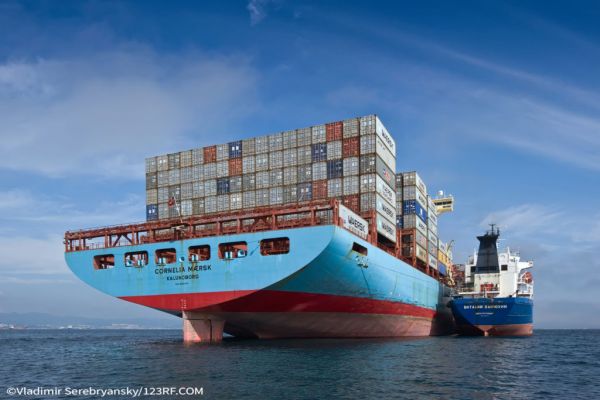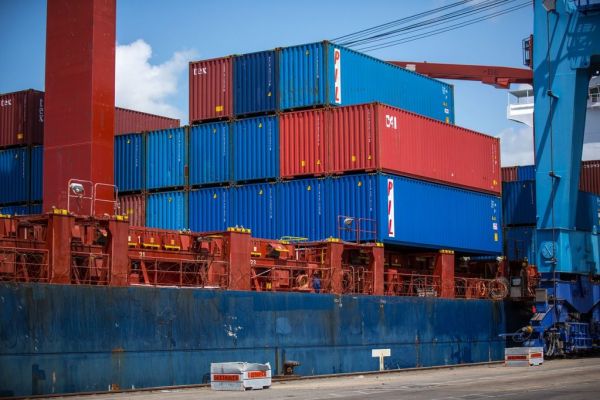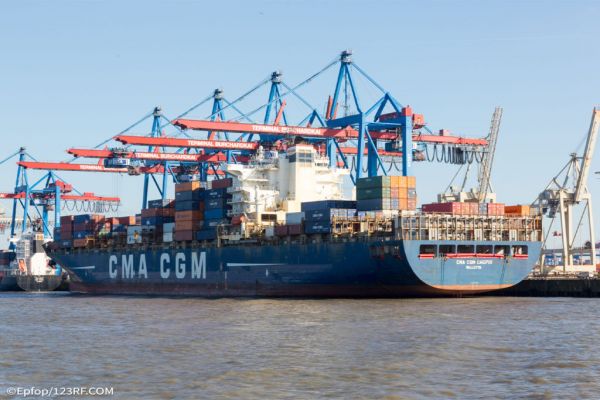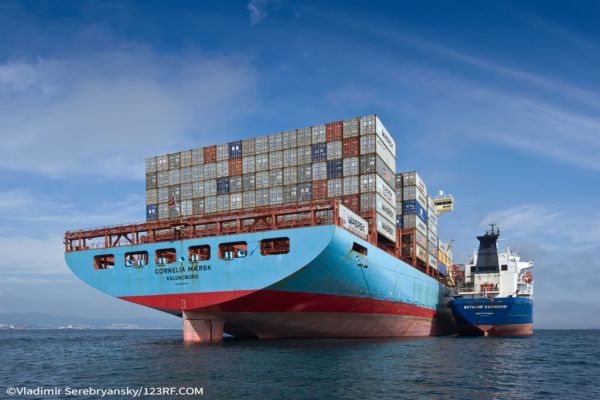Shipping group A.P. Moller-Maersk said that it now expects full-year operating profit at the lower end of its range, and the firm plans to cut 10,000 jobs as it faces lower freight rates and subdued demand for container shipping.
'Our industry is facing a new normal with subdued demand, prices back in line with historical levels and inflationary pressure on our cost base,' the company said in a statement.
It added that since the summer, it has seen overcapacity across most regions triggering price drops , with 'no noticeable uptick in ship recycling or idling'.
Earnings before interest, tax, depreciation and amortisation (EBITDA) plunged to $1.9 billion (€1.79 billion) in the quarter from $10.9 billion (€10.25 billion) a year earlier, slightly above analysts' expectations of $1.81 billion in a Refinitiv poll. Revenues fell 47% to $12.1 billion (€11.38 billion).
'Challenging Times'
"Given the challenging times ahead, we accelerated several cost and cash containment measures to safeguard our financial performance," commented Vincent Clerc, CEO of A.P. Moller-Maersk.
"While continuously streamlining our organisation and operations, we remain dedicated to our strategy of fulfilling our customers’ diversified supply chain needs while pursuing growth opportunities across our Terminals business and Logistic & Services.”
Group Performance
Maersk's Ocean division achieved 'break-even' results amid ongoing market challenges and significantly lower freight rates compared to the unusually high rates in 2022,' the company said. Lower rates were partly offset by reduced operating costs, while cost management remains a priority.
Elsewhere, the Logistics & Services business faced lower rates and volumes, resulting in reduced profitability, with an increased focus on cost control. In the Terminals business, declining storage revenue was attributed to normalised costs and lower volumes, but tariff increases and effective cost control maintained financial stability.
Additional reporting by ESM











